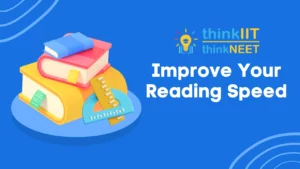Introduction
The medical field is a popular choice among students in India, with many aspiring to become doctors or other healthcare professionals. To gain admission to top medical colleges, students must clear entrance examinations like NEET and AIIMS. These exams, though similar in their purpose, have some fundamental differences.
Key Differences between NEET and AIIMS Exams
Although the AIIMS exam is no longer conducted, it’s essential to understand the key differences between the two exams to gain insights into the past medical entrance examination landscape.
- Conducting Body:
NEET: The National Testing Agency (NTA) conducts NEET for admission to MBBS and BDS courses across India.
AIIMS: AIIMS, New Delhi, used to conduct the AIIMS entrance exam specifically for admission to AIIMS institutions.
- Exam Pattern:
NEET: NEET consists of 180 multiple-choice questions from Physics, Chemistry, and Biology (Botany and Zoology). The exam duration is 3 hours.
AIIMS: AIIMS exam consisted of 200 multiple-choice and reason-assertion-based questions from Physics, Chemistry, Biology, General Knowledge, and Aptitude. The exam duration was 3.5 hours.
- Marking Scheme:
NEET: Each correct answer in NEET carries four marks, and one mark is deducted for each incorrect answer.
AIIMS: The AIIMS exam had different marking schemes for multiple-choice and reason-assertion-based questions. Each correct answer carried one mark for multiple-choice questions, and one-third of a mark was deducted for each incorrect answer. For reason-assertion-based questions, each correct answer carried one mark, and no negative marking was applicable.
- Difficulty Level:
NEET: NEET is considered to have a moderate difficulty level, with questions based on the NCERT syllabus.
AIIMS: AIIMS exam was perceived as more challenging than NEET. With questions that tested the candidate’s aptitude, general knowledge, and subject knowledge.
- Number of Seats:
NEET: NEET covers all the MBBS and BDS seats across India, including AIIMS institutions.
AIIMS: AIIMS exam was limited to the AIIMS institutions, which offered around 1200 seats.
NEET and AIIMS Exams: An Overview
National Eligibility cum Entrance Test (NEET) is a national-level medical entrance exam conducted by the National Testing Agency (NTA) for admission to undergraduate medical and dental courses in India. NEET is the single entrance exam for all MBBS and BDS courses nationwide, including government and private colleges.
AIIMS, New Delhi, conducted a separate entrance test called the AIIMS (All India Institute of Medical Sciences) exam for admission to MBBS courses at AIIMS institutions across India. However, starting in 2020, NEET has replaced the AIIMS exam, becoming the sole entrance exam for all medical aspirants in India.
Tips for Preparing for NEET and AIIMS Exams
Even though NEET has replaced the AIIMS exam, the preparation tips for both exams are quite similar. Here are some general tips to help you prepare for medical entrance exams:
- Understand the exam pattern and syllabus: Familiarize yourself with the NEET exam pattern and syllabus to create a comprehensive study plan.
- Stick to a study schedule: Consistency is crucial for success in competitive exams. Make a study schedule and stick to it.
- Focus on NCERT books: NEET is based on the NCERT curriculum, so thoroughly study NCERT textbooks for Physics, Chemistry, and Biology.
- Practice regularly: Regular practice is essential to master concepts and improve problem-solving skills. Attempt mock tests and solve previous years’ question papers.
- Revise consistently: Regular revision helps reinforce your understanding of the subjects and improves memory retention.
- Stay updated with current affairs: Though the NEET exam doesn’t have a separate section for General Knowledge, staying updated with current affairs can help you in the long run, especially during interviews for admission to premier institutions.
- Take care of your mental and physical health: A healthy mind and body are essential for maintaining focus and motivation during exam preparation. Eat healthily, exercise regularly, and ensure you get enough sleep.
Adapting AIIMS Preparation Strategies for NEET Success
For students who previously prepared for the AIIMS exam, adapting these strategies for NEET can help enhance their performance. Here are some tips to consider when transitioning from AIIMS to NEET preparation:
- Refocus on the syllabus: While the AIIMS exam had a broader scope, including General Knowledge and Aptitude, NEET focuses solely on Physics, Chemistry, and Biology. Revise your study plan to concentrate on these subjects, using the NCERT curriculum as your primary guide.
- Adjust your practice routine: NEET questions may be less challenging than those in the AIIMS exam, but practicing a variety of questions is still crucial. Incorporate NEET-specific mock tests and previous years’ question papers into your study routine to familiarize yourself with the exam’s format and question types.
- Strengthen your foundation: A strong foundation in core concepts is vital for NEET success. Revisit fundamental concepts from NCERT textbooks, and consider using additional reference materials to deepen your understanding.
- Develop time management skills: Although the NEET exam has a shorter duration than the AIIMS exam, managing your time effectively during the exam remains critical. Practice solving questions within the given time constraints to improve your speed and accuracy.
- Leverage AIIMS preparation insights: The rigorous preparation for the AIIMS exam can give you an edge in NEET. Use the knowledge, skills, and problem-solving abilities developed during your AIIMS preparation to tackle NEET questions with confidence.
Navigating the Changing Medical Entrance Examination Landscape
With NEET as the single entrance exam for all medical aspirants in India, it’s essential to stay informed about the latest updates, exam patterns, and preparation strategies. Be proactive in seeking guidance from teachers, mentors, and online resources to ensure you’re on the right track.
Embracing the Future of Medical Education
The unification of medical entrance exams under NEET presents an opportunity for students to streamline their preparation and focus on a single, comprehensive exam. This change simplifies the medical education landscape, making it more accessible to aspiring healthcare professionals. By embracing this change and adapting your preparation strategies, you can work towards achieving your dream of becoming a successful doctor or healthcare professional in India.
In conclusion, understanding the differences between NEET and the now-defunct AIIMS exam is crucial for students to adapt their preparation strategies effectively. By focusing on the core subjects, practicing diligently, and staying informed about the latest updates, students can successfully navigate the changing medical entrance examination landscape and achieve their goals in the field of healthcare.
Additional Resources for NEET Preparation
To further enhance your NEET preparation, consider utilizing the following resources:
- Online platforms and apps: Many online platforms and mobile apps offer comprehensive study materials, designed for NEET. These resources can help you supplement your self-study and gain a better understanding of complex topics.
- Coaching Institutes: Joining a reputable coaching institute can provide you with expert guidance, structured study materials, and a competitive environment that can boost your preparation. Research and select an institute that best suits your needs and preferences.
- Study groups: Forming or joining a study group with like-minded peers can help you stay motivated, share knowledge, and clear doubts more effectively. Engaging in group discussions and solving problems together can enhance your learning experience.
- Social media and discussion forums: Connecting with other NEET aspirants through social media groups or online discussion forums can provide you with valuable insights, tips, and resources. You can ask questions, share experiences, and learn from the collective wisdom of fellow students.
- Webinars and workshops: Attend webinars and workshops hosted by experienced educators and subject matter experts to gain additional insights into NEET preparation strategies, time management techniques, and stress management.
Overcoming Challenges in NEET Preparation
Preparing for NEET can be an overwhelming and challenging journey. However, by adopting a proactive and resilient mindset, you can overcome these challenges and emerge stronger. Here are some tips to help you tackle common obstacles during NEET preparation:
- Stay consistent: Consistency is key to success in any competitive exam. Set a daily study schedule and stick to it, even when motivation is low.
- Set realistic goals: Break your long-term goals into smaller, manageable targets. This will help you maintain motivation and track your progress more effectively.
- Seek guidance: If you’re struggling with a particular concept or topic, don’t hesitate to seek guidance from teachers, mentors, or peers. Asking for help is a sign of strength, not weakness.
- Practice self-care: Maintain a healthy lifestyle by eating well, exercising regularly, and getting enough sleep. Taking care of your physical and mental well-being is essential for sustaining focus and motivation throughout your preparation.
- Embrace failure as a learning opportunity: It’s natural to encounter setbacks and failures during your NEET preparation journey. Instead of dwelling on these setbacks, use them as opportunities to learn and grow.
In conclusion, adapting your preparation strategies and leveraging available resources can significantly improve your chances of success in NEET. By focusing on consistency, setting realistic goals, and practicing self-care, you can overcome challenges and achieve your dream of joining a top medical college in India. Remember, your determination, hard work, and resilience are the key to success.
Evade Common Pitfalls in Your NEET Journey
Embarking on the NEET preparation journey can be daunting, with numerous students stumbling over the same hurdles. A critical misstep is overlooking the foundational NCERT textbooks, essential for grasping basic concepts. An uneven focus across subjects often results in a lopsided understanding, undermining the holistic approach required.
Moreover, the omission of consistent revision and mock tests leaves aspirants ill-prepared for the exam’s rigor and format. To sidestep these common blunders, delve into our guide on avoiding common mistakes during NEET preparation, tailored to streamline your study strategy.
Boost Your NEET Strategy with Online Mock Tests
In today’s tech-driven era, leveraging online test series can dramatically transform your NEET preparation. These digital platforms simulate the exam environment, fostering time management and resilience under pressure. Immediate feedback highlights areas needing improvement, ensuring a focused revision strategy.
The diversity of questions sharpens analytical skills, preparing candidates for the variety they’ll encounter. To effectively incorporate this tool into your preparation plan, explore our insights on enhancing NEET preparation through online test series, offering strategies to optimize your study schedule.
Conclusion
Understanding the differences between the NEET and AIIMS exams is crucial for students who aspire to join medical colleges in India. While the AIIMS exam has been discontinued, and NEET now serves as the single entrance exam for all medical aspirants, the preparation strategies for both exams share similarities.
By focusing on mastering the concepts, practicing regularly, and maintaining a healthy lifestyle, you can increase your chances of success in NEET and secure a seat in a top medical college.
Powered by thinkIIT
Follow us on
Facebook
Twitter
Instagram
FAQs
- Is the AIIMS exam still conducted?
No, the AIIMS exam has been discontinued from 2020. NEET is now the single entrance exam for all medical aspirants in India, including those seeking admission to AIIMS institutions.
- Is the syllabus for NEET and the former AIIMS exam the same?
While the NEET and AIIMS exams shared similarities in their syllabus, covering Physics, Chemistry, and Biology. AIIMS exam also included General Knowledge and Aptitude sections. The NEET syllabus is based on the NCERT curriculum, while the AIIMS exam had a reputation for being more challenging.
- How many times can a candidate attempt NEET?
There is no limit to the number of attempts for NEET. However, candidates must meet the age criteria, which state that the minimum age for appearing in NEET is 17 years, and the maximum age limit is 25 years for general category candidates and 30 years for SC/ST/OBC-NCL/PwD category candidates.
- What is the reservation policy for AIIMS institutions now that NEET is the sole entrance exam?
Since NEET serves as the sole entrance exam for all medical aspirants in India, AIIMS institutions have aligned their reservation policy with that of NEET. The policy includes reservations for SC, ST, OBC-NCL, PwD categories, and the EWS (Economically Weaker Sections) quota.




